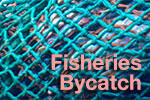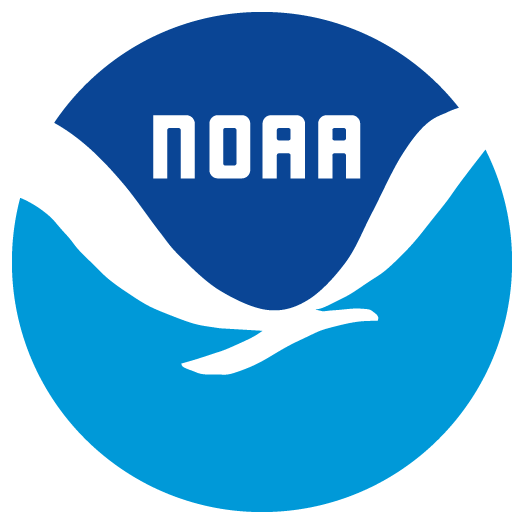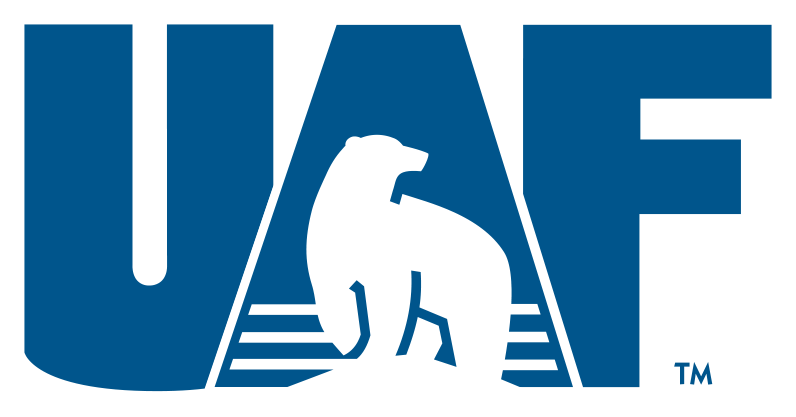Symposium Information
- Background
- Goal of the Symposium
- Sessions
- Abstract Submission
- Program
- Invited Speakers
- Proceedings
- Location & Facilities
- Registration
- Scientific Steering Committee
- Sponsors
- Symposium Contact Information
Background
According to a study by the Food and Agriculture Organization of the United Nations, fishery discards averaged 7.3 million metric tons worldwide during 1992–2001. Despite evidence for a substantial reduction in discards in recent years, this waste of fish resources remains an important public concern, especially when so many fisheries worldwide are fully or overexploited. From a conservation view, bycatch can compromise fisheries sustainability, especially if mortalities of retained bycatch or discards are not included in estimates of total fishing mortality for a commercially important species when monitoring annual harvests relative to overfishing limits. Conservation concerns extend to noncommercial and protected species, when bycatch endangers species with vulnerable life histories and protected species at low population abundances (e.g., marine mammals, seabirds, and other fish). Economic issues include increased sorting costs associated with catches of undesirable species, sexes, or sizes and foregone harvests of valuable target species owing to harvest restrictions or area closures to protect bycatch species. Social issues include resource conflicts involving competing users of marine resources and difficult allocations of catch/bycatch among different sectors.
However, in recent decades, reductions in bycatch have resulted from improved enforcement and more novel solutions. Many successes resulted from cooperative efforts with the fishing industry, including development of more selective gear designs, novel bycatch reduction devices, and deterrent mechanisms, some of which capitalize on new understandings of animal behavior. Incentive programs have led to other creative approaches, such as individual bycatch quotas, industry-operated "hot spot" programs, and implementation of full retention and accountability regulations. An international symposium is long overdue to share recent developments toward creative solutions to global fishery bycatch issues.
Goal of the Symposium
The goal of this symposium is to bring together fishery and social scientists, managers, fishermen, and other stakeholders from around the world to report on creative approaches to solving fishery bycatch issues. For purposes of this symposium, we define bycatch in broad terms to include retained incidental catch, fishery discards, and unobserved mortalities as a result of direct encounters with fishing gear. We seek contributions on new methods and technologies, advancements toward full accounting of fishing mortality into harvest control rules, approaches toward industry-derived solutions, incentive programs, new regulatory solutions, as well as studies on social and economic implications related to bycatch issues. We seek broad input on addressing bycatch issues concerning a range of fish, invertebrate, mammal, seabird, and other species. We especially encourage contributions on how to deal with data-poor species, protected and endangered species, and species with vulnerable life histories (e.g., long-lived species with low rates of reproduction and natural mortality).
Symposium Sessions
- Fisheries bycatch—what are the biological and ecological issues?
- Economic and social considerations of bycatch
- Accounting for bycatch of nontarget fish species
- Solutions for monitoring protected and endangered species
- Gear developments and other technological solutions
- Fishery regulatory approaches and solutions
- Industry initiatives, solutions, and cooperative research
Abstract Submission
To contribute an oral or poster presentation, submit an abstract on one of the session topics no later than January 27, 2014, using the online submission form.
Abstracts must include
- Type of presentation preferred (oral or poster).
- Topic area from the session list, or suggest a topic.
- Title, in upper/lowercase type, using as few words as possible.
- Author names with full affiliation, mailing address, phone, and email.
- Name of presenter and contact person if different from first author.
- Text of abstract in 250 words or less; please do not include any headings, tables, figures, or references.
Invited Speakers
Keynotes
- Steve Murawski, University of South Florida, College of Marine Science, St. Petersburg, Florida, USA
Session 1: Fisheries bycatch—what are the biological and ecological issues?
- Shijie Zhou, CSIRO Marine and Atmospheric Research and Wealth from Oceans Flagship, Brisbane, Queensland, Australia
Session 2: Economic and social considerations of bycatch
- Gordon Gislason, GSGislason & Associates Ltd., Vancouver, British Columbia, Canada
Session 3: Accounting for bycatch of nontarget fish species
- James M. Nance, NMFS Galveston Laboratory, Fisheries Management Branch, NOAA Fisheries, Galveston, Texas, USA
Session 4: Solutions for monitoring protected and endangered species
- Lotte Kindt-Larsen, DTU Aqua-National Institute of Aquatic Resources, Technical University of Denmark, Charlottenlund, Denmark
Session 5: Gear developments and other technological solutions
- Heui-Chun An, National Fisheries Research & Development Institute, Gangwon-Do, Korea
Session 6: Fishery regulatory approaches and solutions
- Alan Haynie, Resource Ecology and Fisheries Management Division, Alaska Fisheries Science Center, NOAA Fisheries, Seattle, Washington, USA
Session 7: Industry initiatives, solutions, and cooperative research
- John Gauvin, Alaska Seafood Cooperative, Seattle, Washington, USA
Program
Presentations will begin at 8:15 a.m. on Tuesday, May 13 and continue until noon on Friday, May 16. The program will be updated as necessary until the time of the meeting.
The official language of the symposium is English. Participants needing interpretation or translation services should provide their own, and notify the symposium coordinator.
Poster Session
On Tuesday, May 13, at 6̫9 p.m., a reception/poster session will be held, with appetizers and cash bar.
Proceedings
Alaska Sea Grant will publish a peer-reviewed proceedings, including full papers based on oral and poster presentations, soon after the symposium. The publication will be electronic, with a limited number of paper copies also available. Members of the steering committee will serve as editors for the symposium proceedings. Manuscripts are due during the week of the symposium, May 13–16, 2014. Please see Manuscript Preparation Instructions [PDF; 188 KB].
Location and Facilities
All meeting sessions will be held at the Hilton Anchorage Hotel in downtown Anchorage. The Hilton offers pleasant accommodations with high speed Internet in the guest rooms and complimentary wireless Internet in the lobby. Guest amenities include a café, dining, business center, fitness room, and swimming pool. Most guest rooms have great views of mountains or Cook Inlet.
Guest rooms will be available at the special meeting rate of $129/night single or double occupancy plus 12% bed tax. Be sure to make your reservations directly with the hotel by April 13, 2014. This rate extends three days prior to and three days after the meeting dates. To secure the rate, register online and use the group code AKSEA. Or call the Hilton Anchorage Hotel reservation number and mention the Alaska Sea Grant group and the dates of the meeting, May 13–16, 2014.
Hilton Anchorage Hotel
500 West Third Ave
Anchorage, Alaska, 99501, USA
1-907-272-7411
Registration
The registration fee for the symposium is $250 US ($200 student) if paid on or before April 13, 2014. The late registration fee will be $300 ($250 student) after April 13. The fee covers continental breakfast and break refreshments daily, a catered reception, symposium materials, and published proceedings. Please register and pay your fees in advance so that adequate materials are available. Online secure registration is available at the link below. Payment can be made with credit card or check.
Scientific Steering Committee
- Gordon H. Kruse (chair)
University of Alaska Fairbanks, School of Fisheries and Ocean Sciences, Juneau, Alaska USA - Heui Chun An
National Fisheries Research & Development Institute, Gangwon-Do, Korea - Bram Couperus
Wageningen University, Institute for Marine Resources and Ecosystem Studies (IMARES), IJmuiden, The Netherlands - Paula Cullenberg
University of Alaska Fairbanks, Alaska Sea Grant, Anchorage, Alaska USA - Jane DiCosimo
North Pacific Fishery Management Council, Anchorage, Alaska USA - Carrie Eischens
North Pacific Research Board, Anchorage, Alaska USA - Gordon Gislason
GSGislason & Associates Ltd., Vancouver, British Columbia, Canada - Doug McBride
U.S. Fish and Wildlife Service, Anchorage, Alaska USA - Steven A. Murawski
University of South Florida, College of Marine Science, St. Petersburg, Florida USA - Craig Rose
NOAA Fisheries, Alaska Fisheries Science Center, Seattle, Washington USA - Chris Siddon
Alaska Department of Fish and Game, Juneau, Alaska USA
Sponsors
- Alaska Department of Fish and Game
- Alaska Sea Grant
- International Pacific Halibut Commission
- North Pacific Fisheries Research Foundation
- NOAA Alaska Fisheries Science Center
- North Pacific Fishery Management Council
- North Pacific Marine Science Organization (PICES)
- North Pacific Research Board
- School of Fisheries and Ocean Sciences, University of Alaska Fairbanks
- U.S. Fish and Wildlife Service
Symposium Contact Information
Email symposium coordinator.



